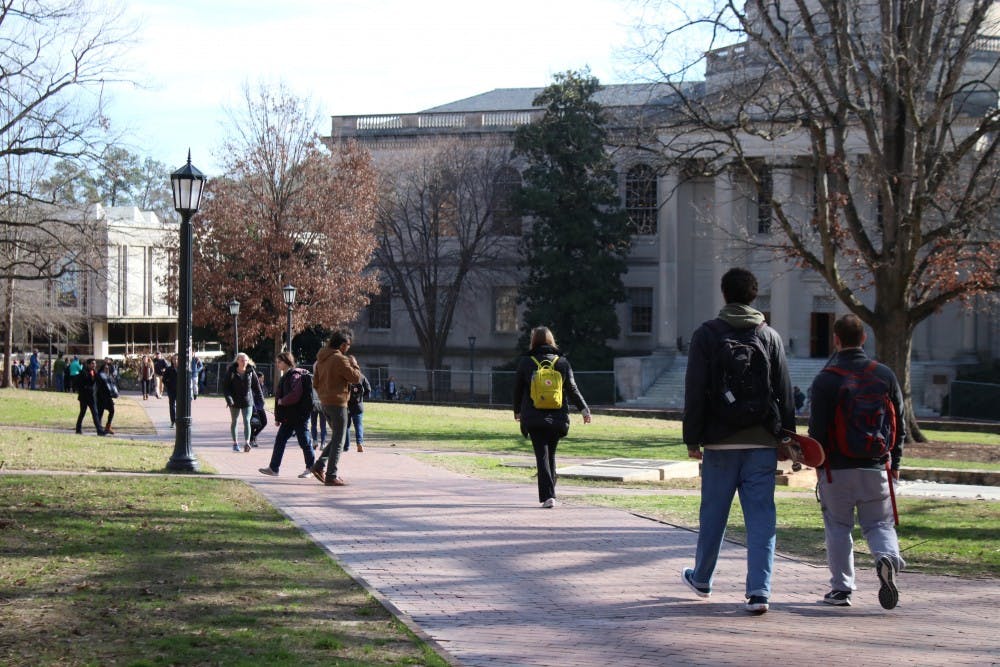A North Carolina state senator has drafted a bill that, if passed, would increase tuition for some out-of-state undergraduate students.
Under Senate Bill 351, sponsored by N.C. Sen. Tom McInnis, R-Anson, out-of-state undergraduates at UNC and North Carolina State University would pay $5,000 more in tuition for the 2019-2020 academic year. The Board of Governors would then not be allowed to lower out-of-state tuition below that level in coming years, although it could also opt to not increase tuition beyond that.
McInnis said he was driven by the concerns of his constituents.
“The reason for my law is, I represent three of the poorest counties in North Carolina, in my district: Scotland, Richmond and Anson County,” he said.
All three counties have median household incomes less than the state median and poverty rates above the state average.
In 2016, the state legislature approved a program in which new resident undergraduates and new transfer students who remain continuously enrolled pay a fixed tuition rate. For example, a tuition increase for the 2017-2018 school year would only apply to first-time enrollees for the fall of 2017.
“I’ve got a lot of parents down there and a lot of kids that scrimp and save and do without to be able to get enough money to be able to go the flagship schools of the University of North Carolina System, Chapel Hill and N.C. State,” said McInnis.
For the 2018-2019 academic year, undergraduate residents attending UNC pay around $4,500 in tuition per semester. Out-of-state undergraduates pay around $17,500.
According to a government impact assessment, tuition for undergraduate in-state students would potentially decrease by $862 next year if the bill passes.




